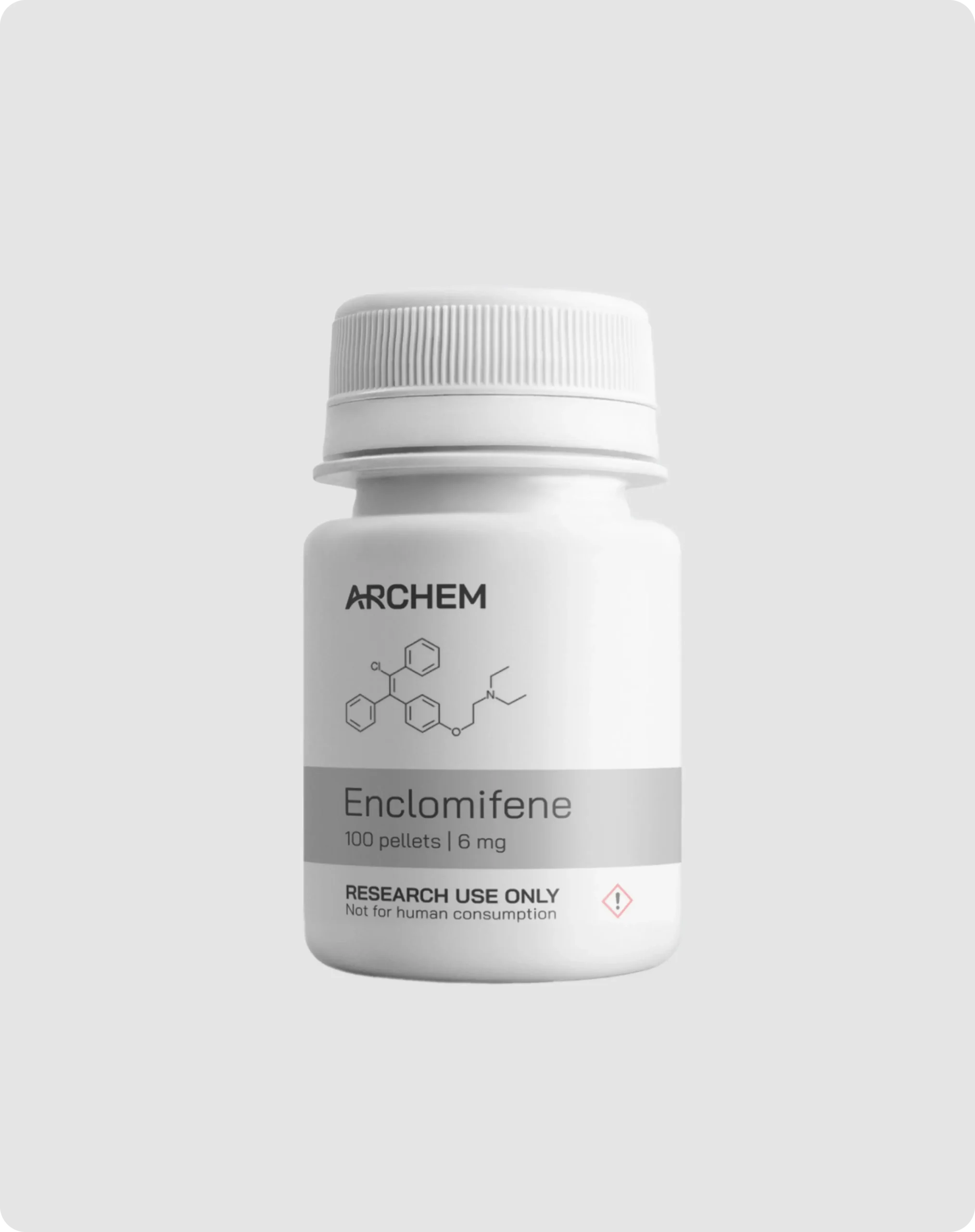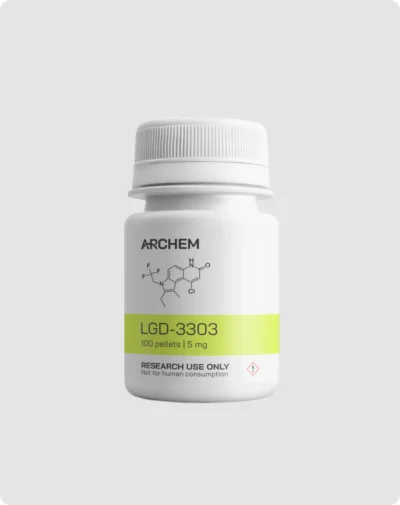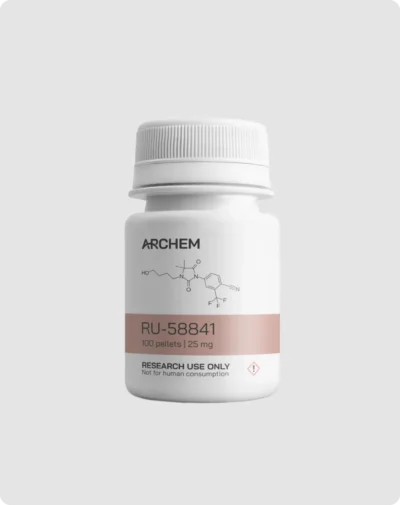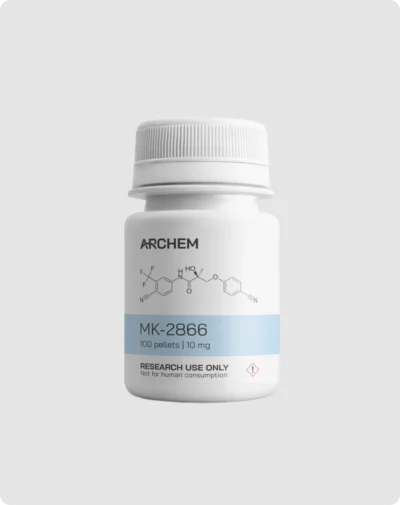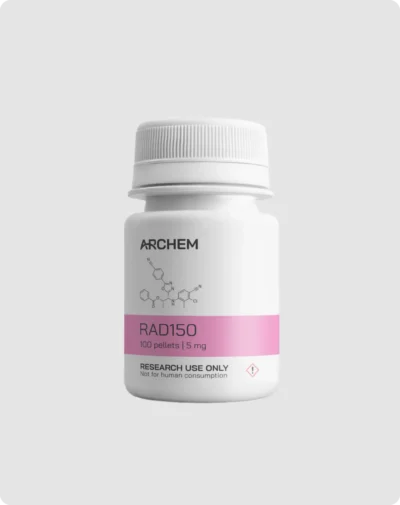Description
Enclomiphene Pellets
CAS Number: 7599-79-3
Molecular Formula: C_26H_28ClNO
Molecular Weight: 405.96 g/mol
Description:
Enclomiphene, an established selective estrogen receptor modulator (SERM), is the trans-isomer of clomiphene, notable for its relative selectivity and potential hormonal modulating effects. In research settings, enclomiphene is frequently studied for its ability to influence hormonal feedback loops, particularly within the hypothalamic-pituitary-gonadal axis. The pellet form provides a convenient, standardized format to streamline dose preparation, reduce handling errors, and ensure consistency across experimental workflows.
Features & Benefits:
- High Purity: Produced under stringent quality control measures to facilitate reproducible experimental outcomes.
- Pellet Format: Precision-crafted pellets ensure consistent dosing, reduced contamination risk, and simplified handling as compared to raw powders.
- Research Utility: Suitable for studies examining estrogen receptor modulation, endocrine function, and reproductive physiology within academic and pharmaceutical research environments.
Applications:
- Investigating the influence of estrogen receptor modulation on reproductive endocrinology
- Assessing potential therapeutic interventions in conditions involving hormonal imbalances
- Exploring structure-activity relationships and mechanism of action within the SERM class
Storage & Stability:
Store at -20°C in a tightly sealed container, protected from light and moisture. Under recommended conditions, enclomiphene pellets remain stable for the duration indicated in the product’s certificate of analysis.
Safety & Handling:
For laboratory research use only. Not intended for human or veterinary consumption. Wear appropriate personal protective equipment (gloves, lab coat, eye protection) when handling. Refer to the Material Safety Data Sheet (MSDS) for complete safety and handling guidelines.
Disclaimer:
All products are intended exclusively for R&D applications. The purchaser is responsible for ensuring that use, handling, and disposal of the product complies with all relevant laws and regulations.
Our Chemist’s View:
Enclomiphene, a selective estrogen receptor modulator, is known for its stereoselectivity and structurally complex features that differentiate it from its related isomer, zuclomiphene.
From an analytical chemistry perspective, ensuring purity and identity often involves chiral high-performance liquid chromatography (HPLC) to distinguish enclomiphene from its geometric and stereoisomeric counterparts. Additionally, Fourier Transform Infrared (FTIR) spectroscopy provides a rapid means to confirm the presence of characteristic functional groups, while mass spectrometry offers precise molecular weight verification and impurity profiling.

